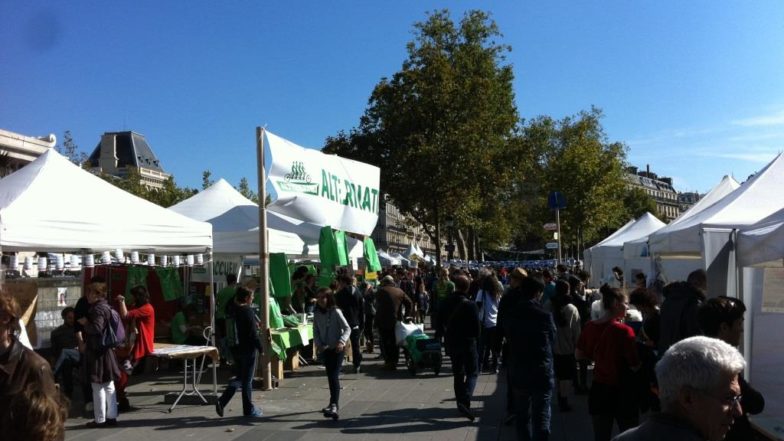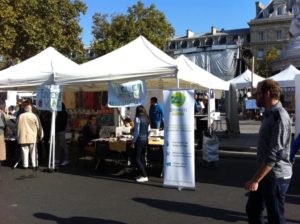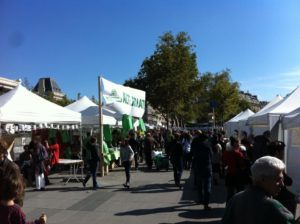Alternatiba: grass-roots alternatives to climate change

The Alternatiba Festival was successful in making the case that there are alternatives to climate change in addition to energy transition and that without them, it will not be possible to mitigate the effects of climate change.
After 5,637 km of cycling, the Alternatiba Festival finally arrived in Paris on the 26th September, having left Bayonne in early June and travelled through Spain, Germany, Switzerland, Luxembourg, Belgium and most of France and gathered in these four months, more than 300,000 people in 187 cities and towns.

Alternatiba was born two years ago in Bayonne, in the French Basque Country, hoping to present real and grass-roots alternatives to climate change. Two years later, it has become the largest ever environmental festival in France and it has raised awareness about climate change as a systemic problem, requiring systemic changes.
The weekend in Paris consisted of 14 different “neighbourhoods”, from ‘Energy’ to ‘Zero Waste’, but also ‘Banking’,and ‘Agriculture’, emphasizing that the fight against climate change is diverse in itself and requires efforts from all sectors. More than 60,000 people visited the stalls of NGOs, associations and civil society, attended talks, ate ‘un-wasted food’ at the Feeding the 5000 event, and generally enjoyed the good mood and atmosphere of the people mobilized and engaged for the betterment of the planet, our present and our future.

Zero Waste was particularly visible aspect of the Paris Alternatiba Festival thanks to the efforts of our friends at Zero Waste France who provided their expertise on how to minimize waste at the event: deposit and return cups, increasing the segregation of biowaste and compostable products, ensuring proper information, etc. At the same time, the Zero Waste neighbourhood stressed the importance in the fight against climate change of shifting from wasteful societies to zero waste societies. Zero Waste France presented their Plan B’OM, a citizens-led alternative plan to the construction of a big incinerator in Ivry (Paris region), organized workshops on how to make fabric bags and another on the importance of buying in bulk, and how to do so. Their rubbish autopsy was also a success, showing that there are still many non-recyclable products that need to be re-designed.
Les Amis de la Terre (Friends of the Earth France) presented a guide on re-use and participated in a debate on ‘planned obsolescence’ along with HAP, a new organisation created to fight the artificial limiting of a products life. Other stands offered training in composting and vermi-composting or presented warnings about the most useless big investments in waste facilities in France (mostly MBT plants and incinerators). Repair café demonstrated how to empower citizens re-use their products and other groups showcased upcycled objects.

The Zero Waste neighbourhood was very well complemented by the ‘Water’ neighbourhood, where Surfrider highlighted marine litter and plastics, the ‘Banking’ neighbourhood advocating for the divestment from environmentally toxic projects, such as incinerators, and by the ‘Housing’ neighbourhood that underlined the importance of green building and recyclable construction materials.
Overall, the Alternatiba Festival was successful in making the case that there are alternatives to climate change in addition to energy transition and that without them, it will not be possible to mitigate the effects of climate change.Zero Waste was particularly visible aspect of the Paris Alternatiba Festival thanks to the efforts of our friends at Zero Waste France who provided their expertise on how to minimize waste at the event